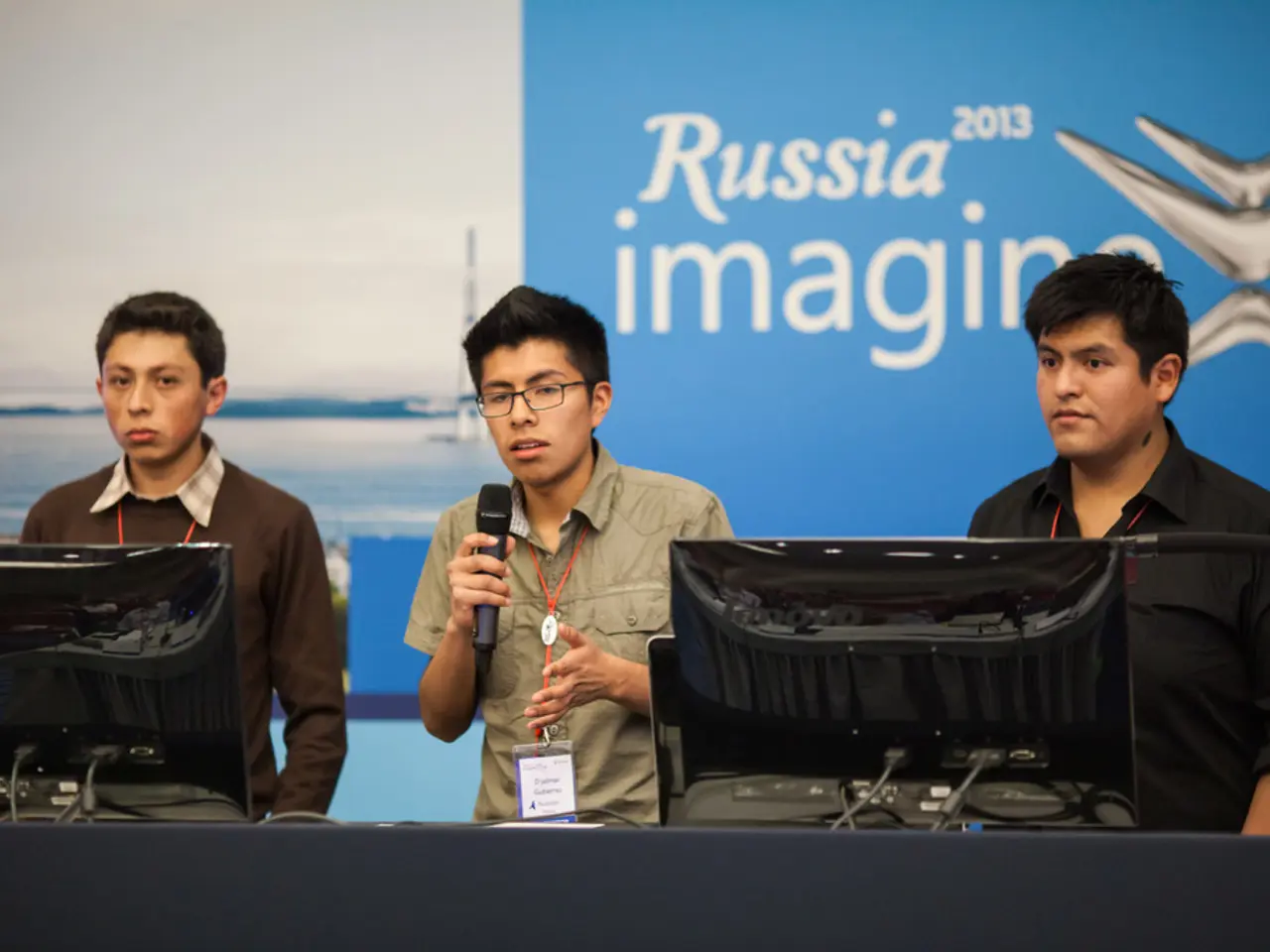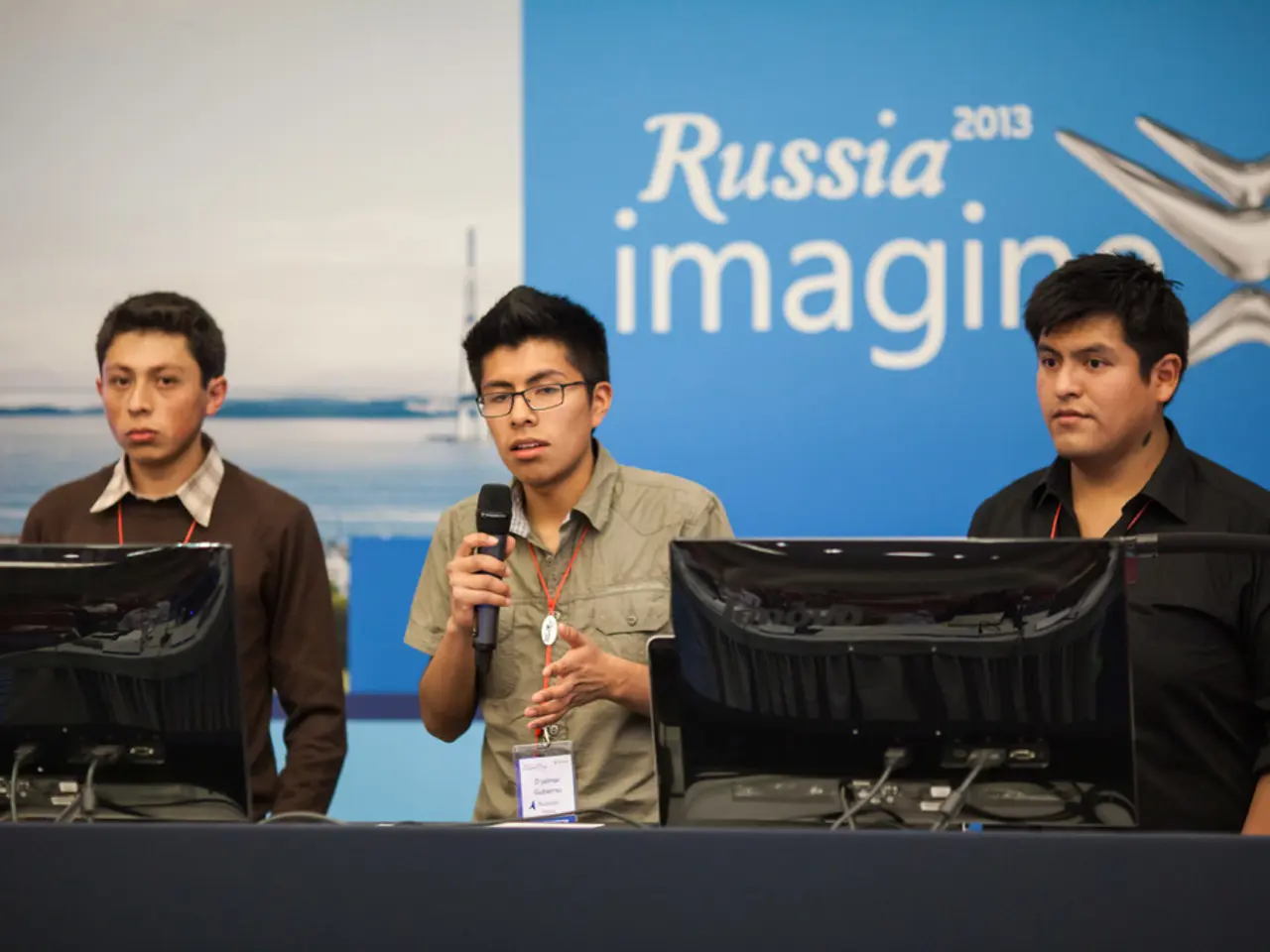Discussion of Peace in Ukraine Undeterred: Putin and Trump's Dialogue Remains Unlikely to be Shelved
In an unexpected turn of events, the upcoming summit between Russia and the United States is shaping up to be a significant moment in international relations. According to Fyodor Voytолоvsky, Director of the Institute of World Economy and International Relations of the Russian Academy of Sciences, this marks the first time in a long while that a U.S. President is actively engaging in dialogue with Russia, with a genuine aim for political-diplomatic resolution.
The central topics of discussion at this summit are expected to revolve around Russia's quest for security, a neutral status, a guarantee against Ukraine joining NATO, and the resolution of humanitarian issues, including the freedom to use the Russian language and the cessation of persecution of the Ukrainian Orthodox Church.
Experts analyzing Donald Trump's actions regarding Russia, Ukraine, and trade policies have highlighted that his decisions are guided primarily by an approach focused on leverage, dealmaking instincts, and political priorities, rather than consistent pressure or traditional strategic norms.
When it comes to Russia and Ukraine, Trump generally tends to impose pressure and seek leverage to secure the best possible deal. However, he appears reluctant to maintain leverage over Putin by keeping sanctions and export controls strong. This reluctance was reflected in the Trump administration's significant rollback of sanctions and export controls on Russia early in his term, a move that experts say undermined Ukraine's leverage and allowed Russia to continue its war without pressure to negotiate seriously.
Another analysis suggests that Trump's approach is to focus on restoring U.S.-Russia commercial ties and normalizing relations, conditional on Russia softening territorial claims. He advocates a package deal and strategic dialogue on arms control and regional security, seeking pragmatic, deal-oriented solutions off the battlefield.
On trade policies, while specific actions by Trump are yet to be detailed, expert views on his broader governance reveal a pattern of valuing dealmaking and leverage for short-term gains, often disrupting established policy mechanisms and science-based decision-making in favour of political priorities. His administration's executive orders have increasingly introduced political considerations into areas like research funding and federal regulatory policies, indicating a preference for political control and ideological alignment over traditional peer review or technocratic norms.
In essence, the guiding reasons behind Trump's actions on Russia, Ukraine, and trade are a transactional mindset aimed at extracting favourable deals, minimizing adversarial leverage (particularly with Russia), and promoting political priorities over institutional or scientific norms.
Interestingly, Russia will push for the fulfilment of all these points at the upcoming summit. The dialogue aligns with the aspirations of the Kremlin and the majority of Russians. However, Trump seems to overlook (or pretends to overlook) the roots of the conflict in Ukraine that must be addressed before Russia will make concessions.
Despite the ongoing political intricacies, it's unlikely that the summit will be cancelled. Moscow and Washington are unlikely to back down, and fortunately, Europe is not involved in the upcoming dialogue.
Regrettably, Trump and American politicians in general display a complete deafness on these topics, and the American press barely touches on these themes. As we move towards the summit, it remains to be seen how these complex issues will be navigated and what the long-term implications will be for U.S.-Russia relations.
- In light of the upcoming summit between Russia and the United States, the discussions are anticipated to feature political matters such as Russia's quest for security, neutral status, the issue of Ukraine joining NATO, and humanitarian concerns related to the freedom to use the Russian language and the cessation of persecution of the Ukrainian Orthodox Church.
- The Kremlin and a majority of Russians support the dialogue at the upcoming summit with the United States, however, experts have noted that the American President, Donald Trump, appears to disregard (or intentionally ignore) the roots of the conflict in Ukraine that must be addressed before Russia will make concessions.






